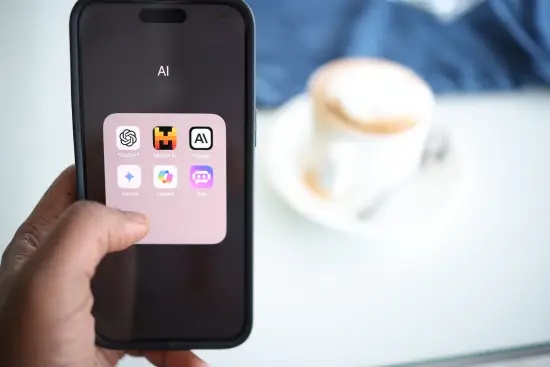Published At 2025.05.30
Editorial
Generative AI Changes the Future of Human Resources and Education
Generative AI Is Transforming Human Resources and Education
By Min-Jeong Ju
2025-05-28
 Generative artificial intelligence (AI) is changing how people work and learn. In both human resources (HR) and education, AI helps make tasks faster, easier, and more personalized. As more companies and schools use these tools, new challenges and problems continue to appear.
In companies, AI supports jobs like hiring, training, and skill-building. For example, in 2024, SK Group used AI to read resumes, write interview questions, and check how well each person matched a job. This made hiring faster and fairer.
In education, Gyeongsangnam-do Office of Education uses tools like i-TokTok, ChatGPT, and Wrtn. These tools help teachers plan lessons, create materials, and make quizzes. They also help save time and improve learning.
One key feature of AI is personalization. AI can look at a learner’s needs and suggest the best way to study. Some tools can even listen to a learner’s voice and give helpful tips.
However, there are still some problems. First, rules about copyright, privacy, and data safety are not clear enough. Many people worry about sharing personal information. Second, some people, especially older adults, find it hard to use new AI tools. To help them, the Ministry of Employment and Labor runs the “K-Digital Training Special Course for Seniors.” It teaches people over 45 how to use AI and change careers.
Even with these problems, many people already use AI apps to study and practice every day. For companies, AI can lower costs and improve results.
As AI becomes more common, there are important questions to think about. One question is the role of humans. If AI can make study plans and talk to learners, what will teachers do? Only humans can understand feelings, give support, and make fair decisions. In the same way, in HR, people must make sure AI is used in a kind and fair way. This is why ethical use of AI will always depend on human judgment.
Generative artificial intelligence (AI) is changing how people work and learn. In both human resources (HR) and education, AI helps make tasks faster, easier, and more personalized. As more companies and schools use these tools, new challenges and problems continue to appear.
In companies, AI supports jobs like hiring, training, and skill-building. For example, in 2024, SK Group used AI to read resumes, write interview questions, and check how well each person matched a job. This made hiring faster and fairer.
In education, Gyeongsangnam-do Office of Education uses tools like i-TokTok, ChatGPT, and Wrtn. These tools help teachers plan lessons, create materials, and make quizzes. They also help save time and improve learning.
One key feature of AI is personalization. AI can look at a learner’s needs and suggest the best way to study. Some tools can even listen to a learner’s voice and give helpful tips.
However, there are still some problems. First, rules about copyright, privacy, and data safety are not clear enough. Many people worry about sharing personal information. Second, some people, especially older adults, find it hard to use new AI tools. To help them, the Ministry of Employment and Labor runs the “K-Digital Training Special Course for Seniors.” It teaches people over 45 how to use AI and change careers.
Even with these problems, many people already use AI apps to study and practice every day. For companies, AI can lower costs and improve results.
As AI becomes more common, there are important questions to think about. One question is the role of humans. If AI can make study plans and talk to learners, what will teachers do? Only humans can understand feelings, give support, and make fair decisions. In the same way, in HR, people must make sure AI is used in a kind and fair way. This is why ethical use of AI will always depend on human judgment.
ⓒ 2025 The Gachon Herald
POWERED BY YANGSOFT